|
First off you must not confuse consciousness with thinking. They are not the same. William James back in 1904 in his essay ‘Does Consciousness Exist?’ stated the issue correctly.
To deny plumbly that ‘consciousness’ exists seems so absurd on the face of it…that I fear some readers will follow me no further. Let me then immediately explain that I mean only to deny that the word stands for an entity, but to insist most emphatically that it does stand for a function. There is, I mean, no aboriginal stuff or quality of being, contrasted with that of which material objects are made; but there is a function in experience which thoughts perform, and for the performance of which this quality of being is invoked. That function is knowing. (William James, Journal of Philosophy, Psychology and Scientific Methods, Vol. 1, no. 18, September 1, 1904, pg. 478.) Consciousness is a function of material things. Any material thing which has sensory organs and thus can perceive and feel its environment is a material thing that has consciousness. To feel, to experience is to be and to have consciousness. What is the next step in the evolution of things that have consciousness? A thing that has feeling is the very minimal level, the very minimal capacity to claim that it has consciousness. What is next needed is to have the capacity to differentiate between feelings and to classify them such that there is a recognition that some are beneficial and worth repeating and others are worth avoiding. This is the key to the next level of consciousness, a thing that has the capacity to feel and to classify and differentiate those feelings. Will a machine, a computer ever have consciousness? Only if and only when a machine is built that has sensory systems that can bring that information into its stored memory. If it can register feelings- sensory experiences, then it will have the very rudimentary aspect of consciousness. When it can classify those feelings and can associate its activities with those sensations, it will have the next level of beings that have consciousness. When it can recognize that some feelings are worth avoiding and worth repeating then it will have gained a level of development equal to a single celled organism. Current AI programs are not conscious because they have no capacity to sense their environment.
0 Comments
What are the implications to our legal system of the United States if Trump does not go to jail?5/31/2024 The U.S. Constitution 8th Amendment states:
"Excessive bail shall not be required, nor excessive fines imposed, nor cruel and unusual punishments inflicted." The U. S. Constitution 14th Amendment states: “All persons born or naturalized in the United States, and subject to the jurisdiction thereof, are citizens of the United States and of the State wherein they reside. No State shall make or enforce any law which shall abridge the privileges or immunities of citizens of the United States; nor shall any State deprive any person of life, liberty, or property, without due process of law; nor deny to any person within its jurisdiction the equal protection of the laws.” If Donald Trump is not sentenced to jail for being found guilty of 34 felonies then according to the 8th and 14th amendments of the Constitution anyone found guilty of any felony must not be sentenced to jail time since a rich and famous white male was not required to serve any jail time. Henceforth, anyone can claim that being sentenced to serving jail time is “cruel and unusual punishment”. If some rich and famous white man can get away with it, then anyone should be entitled to avoiding jail time for committing a felony. This is the devastating impact of not punishing a rich white male to the punish he legal is supposed to serve. Babylon 5 Rewatch Season 1 Episode 3, "Born to the Purple".
https://reactormag.com/babylon-5-rewatch-born-to-the-purple/ The key to understanding this episode is to recognize the significance of the phrase—Born to the Purple. https://en.wikipedia.org/wiki/Born_in_the_purple To dye a cloth purple was costly and difficult for a long time in history, and therefore only the wealthy could afford it. This cost is why it became the choice of those in power to create a distinction enforced by decree that only the 'nobility', the political elite who had power, could wear those colors. This episode focuses on the concept of nobility and who is truly born as noble. It contrasts the personality traits associated with being noble with the social status of being noble. This conflict is epitomized in the character of Londo Mollari. Noble personality traits bring to mind someone who possesses outstanding qualities embodied often in the fairy tales and stories of legendary Chivalry, the noble knights of the Round Table of Camelot. Londo wishes to be one of those legendary noble knights, yet he realizes and is afraid that he is only someone who was born to the purple—someone who has this status by the mere fact of being in the social class and bloodline. It is explained in this episode that those in power hold that power by blackmail. They gather incriminating evidence of the misdeeds of others and then wield the threat of publicly denouncing those misdeeds as the means to gain ascendency in the social and political system. Thus, to be noble of the royal houses on Centauri is to act ignobly. Londo, who we later learn has three wives, still craves and desires to be thought of as noble in the legendary meaning of the word, which is why he falls in love with Adira, a young dancer of the Centauri race. Here, Larry DiTillio uses the cliché of the prostitute/illicit dancer with the 'heart of gold' who falls for the elderly gentleman. This fits with JMS's usage of cliches to take them and then to give them life, and then transcend them. Here, the cliché is realized in the personality of Londo who fantasizes and wishes he was deserving of being one of the legendary chivalric knights. He desires this and yet knows at the same time that he falls far short of that fantasy. This trait of wishing to be a chivalric knight explains his actions in the series when he aids others who are acting heroically and thus, like those chivalric knights, over and over again for 'no' immediate benefit. He wishes by that act of support to garner for himself a bit of recognition that he can see himself as acting as a true chivalric noble and, of course, wishing and hoping that others will see him in that manner as well. Therefore, his action of seeming to 'lust' after the young dancer is no longer a mere cliché but an actual insight into his true personality. It is a wish-fulfillment to have someone accept him as what he wishes he was, rather than to be seen merely as the ignoble rich old man who can buy a woman's 'favor'. This is why he is obsessed with seeing Adira dance. It is an outward act of his conflicted personality. Londo feels betrayed at first when he discovers that Adira stole from him. He feels that she betrayed his fantasy more than that she merely stole and betrayed him in actuality. However, once he is told that she is a slave, then he immediately gains a new perspective on her actions. He can now forgive her, sees he assumes that being a slave will justify any act, no matter how ignoble it is to gain one's freedom. This is, of course, why he understands and secretly respects G'Kar and the Narn race. They were enslaved by the ignoble acts of his people, which drove the Narn race to act ignobly to gain their freedom. Londo offered the broch to Adira as a sign that he wished her to be noble and to see herself as such. He wishes her to recognize that she deserves to be socially and politically noble because she showed noble personality traits by seeing that he was worthy of her attention and love. This episode is a masterful study of the dual meanings of the word nobility. Babylon 5 Comments
Currently, on the site Reactor [ https://reactormag.com/ ], previously Tor.com, there is a series of blogs that will explore Babylon 5. [ https://reactormag.com/columns/babylon-5-rewatch/ ] The problem is that the analysis of the show fails to catch some important points that reveal and explain the show. For instance, the very first post completely fails to notice the importance of the opening line in each episode. First off, to appreciate what JMS is doing, you need to pay attention to the literary symbols he is alluding to. Such as in the introduction to all of the episodes they begin with the following line: “It was the dawn of the Third Age of Mankind.” That phrase is a reference to J R R Tolkien’s ‘Third Age of Middle Earth’. https://tolkiengateway.net/wiki/Third_Age https://lotr.fandom.com/wiki/Third_Age https://en.wikipedia.org/wiki/History_of_Arda#Third_Age To fail to recognize JMS use of that phrase is to fail to understand what he is doing throughout the whole series. What JMS is doing by using that phrase, ‘The Third Age of Mankind’, is alerting the perceptive viewer that this is no ordinary TV series, but one that is going to be a giant multiple ‘book’ series in the same manner as The Lord of the Rings. Additionally, it will be an Epic in the same manner as the LOTR, in that it is a grand fantasy covering a vast geography and pre-history. It will also literally allude to similar themes as LOTR. In Tolkien’s Third Age, the supernatural forces of the First Ones were either directly present or their agents were present and active. At the end of this age, the world was left with the retreat or passing of these beings out of space/time, and thus, all creatures were not directly affected by their influence. Those supernatural forces were allegorically and metaphorically the forces of Chaos and Order. Once they left, all beings had to rely solely on their free will to choose how to live. This is exactly what JMS’s world of Babylon 5 is. The Super-Natural First Ones are here as a species that represents Chaos and Order, and they are trying to control the universe of beings. They try to solicit and guide them, and the whole ancient war between these two forces will once again play out until Sheridan proclaims, “Get the Hell out of our galaxy!” By this act the Third Age comes to a close. By doing this, Sheridan is declaring that henceforth all beings will need to rely on their own free will to decide how to think and how to act. They will now be condemned to a state of existential freedom as Jean Paul Sartre described, they will have to face the responsibility for their own actions and choices without the influence or guidance of those Super-Natural beings. https://www.youtube.com/watch?v=x7-165hJAis I hate the word consumer. I despise the underlying idea and worldview that it holds up, supports, and embodies. It is detrimental to my own psychological and, I believe, to our social survival.
We need to fight back. To rid our language and culture of this attack on our being and our society. It is a plague that undermines our psyche and our civilization. I buy stuff, lots of stuff, as much as I can afford – okay, perhaps a little bit more than I should. However, I do not CONSUME anything. Let’s start with something simple: the Rabbis called this level Peshat – a Hebrew word that literally means something like ‘straight’, but it is the starting point of any rabbinic analysis of a text. It asks what does the text actually mean? What does it mean on its face? The simple, straightforward meaning of a text. Thus, in this situation, let’s start with the literal definition of the word ‘consume’. If you toss the word into your search engine and seek its definition, the first basic meaning of the word is that it means that you ingest something. You swallow it whole and use it up. Nothing remains after you consume something. That’s the problem. Our Western, materialistic, commercial, corporate advertising-driven system needs us to be brainwashed into thinking and believing that we are consumers. Thus, having consumed the stuff that this commercial Capitalistic system has produced, we will inevitably have to almost immediately buy more of the same, since what we just purchased is gone. That is a lie. That is the threat to our survival as meaningful people and society – and it is a threat to our planet. That lie is a threat to the whole human species. I don’t consume. The stuff I buy I enjoy, and I cherish. I buy a lot of books, and I read them. I also re-read them. I can’t re-read them if they are all used up and gone. If I had ingested them and consumed them, then they would cease to exist. Well, as my wife will testify, they do still exist, and they take up a lot of room on my bookshelves. Too much room, she sometimes tells me. She, of course, being a public-minded person, does the ‘horrendously unthinkable act’ of actually borrowing books out of—a library! She has stopped buying books and stopped owning books! Unthinkable! Sheer blasphemy! Okay, I’ve calmed down now, and I have forgiven her act of such a violation of…something or other, I’m sure it must be so. Anyway, back to my point. I don’t consume books. I enjoy them. I read them. I collect them. I re-read and fondle them and the memories of my pleasure when I read them. I watch DVDs. I watch shows that I stream. I listen to CDs and music that I hear on Pandora and YouTube. I enjoy them and re-listen to them. Those CDs exist on my computer’s hard drive, so I can replay them. I have the CDs stored so I can loan them out to friends who I wish to share in my enjoyment of them. I don’t even consume food. Okay, perhaps I do consume my lunch. I just have a problem with lunch; I am hungry and never know what to eat. I just know that I need to eat something; otherwise, I won’t feel well. But I do my best to figure out and find something that satisfies me and sustains me. Which is why I often buy Cheetos. I like the taste of those fluffy, crunchy, flavor-filled orange things. I refer to them as the ‘Cheetos-factor’. I need them like some Mary Poppins kind of substance to help ‘the medicine go down’ when I have to eat something for lunch, and I just make myself some sort of sandwhichy thing. Anyway. I don’t consume my Cheetos or even my lunch; I ate them, and I enjoyed them. Yes, they are all gone afterward, but, still I didn’t mindlessly do it. I mindfully enjoyed and savored the experience. I really love breakfast and dinner. I think about those two meals with delight and anticipation. I savor and enjoy the experience, and I always look forward to that experience. I don’t consume my food. I eat it. I don’t consume clothes. I wear them. I like how I look in shirts, pants, belts, shoes, socks, and even my undies. I think carefully about each of those items before I purchase them—I have a certain look, and I need to maintain that certain defining standard of who I am. The clothes makes the man; at least, they help define me. They are my costumes. I cosplay myself when I buy and wear clothes. I never consume any of them. I agonize over having to buy a new car, i.e., a replacement car. The older one, who had served me well and put a lot of miles on it, eventually just breaks down and can’t justify spending the money on its upkeep. I have to buy another vehicle. I sell the previous one back to help afford the purchase of the new one. Still, I may use it up, but I didn’t consume it. Okay, my car may consume gasoline. Okay, I do use electricity to heat my home, power my computer, power our stove, etc. Thus, I may consume electricity since it is all gone when I used it. But I enjoyed the service and benefits that it offered me. Thus, I still claim and maintain I don’t consume it. Our Market driven-Capitalistic-Advertising driven-‘built in obsolescence system requires, like a vampire that we become consumers. It requires us to use stuff up. To continually purchase something 'new' to replace what we had just previously bought. To purchase mindlessly and continually without savoring and enjoying what you had previously bought. To assume that everything is obsolete from the moment you obtain it. That system feeds off of us and sucks us dry and thus creating an ecological catastrophe by using up precious and limited resources. But that system doesn’t care since it is not human. It is an inhuman entity that has no self-realization; it is committing suicide. It is killing us and itself. We need to stop being consumers. Our very existence depends on it. So, bristle, take umbrage, complain, and proclaim to anyone and everyone, becoming annoying and loudly and vigorously declaring your freedom and self-worth by saying, “I am not a consumer!’ Get rid of ‘consumerism’! Stop this madness. Help save ourselves and our planet from extinction. Art by Raymond Bayless from Chaosium's cover of the Complete Dreamlands 4th edition, 1997. This being a short exploration of the Waking World individual and his falling into the lure of Dreamland. The focus of the story is escape. The main character is set up with despair at his current life:
His money and lands were gone, and he did not care for the ways of people about him, but preferred to dream and write of his dreams. Without any purpose to ground him in the Waking World by his lose of his identity – money and land, he becomes unmoored and needs an escape. This is found in dreams. It is clear that in the beginning these are ordinary dreams. But then… The more he withdrew from the world about him, the more wonderful became his dreams; and it would have been quite futile to try to describe them on paper. Kuranes was not modern, and did not think like others who wrote. Whilst they strove to strip from life its embroidered robes of myth, and to shew in naked ugliness the foul thing that is reality, Kuranes sought for beauty alone. When truth and experience failed to reveal it, he sought it in fancy and illusion, and found it on his very doorstep, amid the nebulous memories of childhood tales and dreams. The theme of childhood tales, myths and legends, shows up here as it does in the Dream Quest (1926/1927). Dreamland is a way to access his preferred escape into childhood and leave behind adult failures. There are not many persons who know what wonders are opened to them in the stories and visions of their youth; for when as children we listen and dream, we think but half-formed thoughts, and when as men we try to remember, we are dulled and prosaic with the poison of life. The allure of escape is strong. He dared not disobey the summons for fear it might prove an illusion like the urges and aspirations of waking life, which do not lead to any goal. He recalled a childhood event of seeming successful escape but where he was by adult’s supposedly rescued back into the gray ordinary Waking World. where his spirit had dwelt all the eternity of an hour one summer afternoon very long ago, when he had slipt away from his nurse and let the warm sea-breeze lull him to sleep as he watched the clouds from the cliff near the village. He had protested then, when they had found him, waked him, and carried him home, for just as he was aroused he had been about to sail in a golden galley for those alluring regions where the sea meets the sky. He despaired of his failed life and the misery that he found himself in and thus the allure of escape was extreme and powerful. In time he grew so impatient of the bleak intervals of day that he began buying drugs in order to increase his periods of sleep. Hasheesh helped a great deal, and once sent him to a part of space where form does not exist, but where glowing gases study the secrets of existence. And a violet-coloured gas told him that this part of space was outside what he had called infinity. The gas had not heard of planets and organisms before, but identified Kuranes merely as one from the infinity where matter, energy, and gravitation exist. Kuranes was now very anxious to return to minaret-studded Celephaïs, and increased his doses of drugs; but eventually he had no more money left, and could buy no drugs. Then one summer day he was turned out of his garret, and wandered aimlessly through the streets, drifting over a bridge to a place where the houses grew thinner and thinner. And it was there that fulfilment came, and he met the cortege of knights come from Celephaïs to bear him thither forever. He used drugs to push that escape and to facilitate it. Then his failed life engulfed him and he could not even afford the drugs that was his only means to escape into the world of dreams and Dreamland. Now here Lovecraft creates a ‘happily-ever-after’ fantasy of escape succeeding. Allowing his character to jump from death into eternity in his projection of his dreams. This happy allure is the ultimate escape and presumably something that Lovecraft himself desires. To live a life not as it is but as it once was. Lovecraft creates the illusion of life beyond death. Why not, does not Christianity offer heaven as the eternal resting place of a soul in some never-never-land of bliss? Why not allow death to be transcended by the ultimate escape that it is. Do not all childhood stories end in: And they lived happily ever after? I found those two images online and they seemed to offer up some stereotypes associated with each culture. Here is my overly simplistic working hypothesis:
Every religion is a cultural answer to that social condition. This does seem to offer insights into the difference between the East and the West. Western civilizations have a focus on the individual self, while Eastern civilizations have a renouncing of the individual self. The West focuses on changing conditions within this life, whereas the East looks to escape through death from this unchanging life situation. Why is that? Western civilization is a confluence from two sources: Ancient Greece and the Hebrews. Both cultures were small in population, so everyone counted, and everyone mattered. The ancient Hebrews started out as merely one tribal and then a cluster of tribes, and finally to a small kingdom surrounded by numerically more populous, potentially dangerous kingdoms. Even as the tribe of the Hebrews became the kingdoms of Judah and Israel, the organizing religion and social attitudes were the Hebrew tribal recognition that every person counted and was counted. In the mythological records of the Hebrews, it seems that every birth, at least of the male children—it was a patriarchal and sexist society, was mentioned, and their individual names mattered to who they were. Individuals matter, and the hope for a better life in this world was being held out to the Hebrew people. For the Greeks, their 'bible' that defined who they were and what they were supposed to be was the gift of the Muses—the voice of the God's insights—to Homer in his tales of the Iliad and the Odyssey. In both, the narrative focuses on distinct individuals. The Iliad gives the illusion that everyone who took place in that battle and siege was named. The Odyssey is the tale of one man trying to save himself and a select group of other individuals vs. a select group of other named men who wish to steal his home, his socio-political status, and his wife. The ancient Greeks celebrate contests so that individuals will triumph and be remembered. It is any wonder that with those two sources for Western Civilization to draw upon, the philosophic and cultural focus will be on the importance of actualizing the individuals' desires, dreams, and aspirations for success in this life. Whereas in the Eastern civilizations of China and India, things were much different. Both were large land masses with enormous populations. Both had rigid hierarchical social structures that you were born into, which determined your status and fate. Poverty and, thus, suffering were the gift to the masses from fate. Religion became the answer to that suffering. Within India, the religious answer was to know your place, accept your fate, and be rewarded not in this life but in the next. Escape in what comes after death to a better fate, perhaps even oblivion. The answer is the denial of the self to find the selfless connection to the divine. Which makes perfect sense when the vast majority are stuck in misery. With the advent of Buddhism, this focus does not change but is merely recognized as 'Noble Truths'. Escape from this life is still being held out as the prize and the solution. Renounce the self, renounce the ego, and by that means of selflessness lies your eventual salvation from suffering. In China, you have a Confucian social and political philosophy that focuses on knowing your place, your fated social status, and obeying authority. With the advent of Legalism added to the doctrines of Confucius, you have the social-political answer to not bother with the 'carrot' but just use the big stick and wield it often enough to keep the masses in line. For both India and China, the religious/philosophic doctrines served the status quo and those who were in power. Social change was an evil that their respective religions and philosophies kept in check by its focus on selflessness, fate, and the idea that the status quo would never change. Christianity in the West is the fusion of the Roman Empire and the Hebrew Kingdoms, and Rome came out on top. Again, the clarion call to know your place and accept that position was strong. However, Rome had the Greek idea that an individual's merit could raise their social status. But the Church of Christianity wielded power with the threat of eternal damnation, and the only salvation was by the divine intervention of the Church to save you. Save you NOT in this place but through the escape of the afterlife. Thus, again, an ideology that tried to control the social status quo of its empire. As for Islam, it is submission to God, to the powers that speak for God. With the hope that you will be saved by that submission through the escape to the afterlife. Thus, it is more an 'Eastern' religion than a Hebraic Western one. In summation the Western attitudes of the Hebrew/Greek focus on the individual and the importance of the individual's realizing success and satisfaction in this world would seem to disrupt the Eastern cultures' and religions' hold on the social/political status quo of distribution of power. As I said, I have simplified things, but I believe I pointed out essential themes that hold true. The Last Supper by Ugolino da Siena (Ugolino di Nerio) Italian, ca. 1325–30 Is it possible to quote the actual words of Jesus?
When someone quotes the words of Jesus, are they really doing that? Is Jesus a historical person that you can actually quote? To answer that, let’s refer to someone whose words we can verify. Take Abraham Lincoln. We can verify what he said on November 19, 1863. How can we do this? To establish a historian’s methods to verify what a historical person said, a perfect paradigm is how we can quote the words of Abraham Lincoln’s Gettysburg Address. From: https://en.wikipedia.org/wiki/Gettysburg_Address The Gettysburg Address is a speech that U.S. President Abraham Lincoln delivered during the American Civil War at the dedication of the Soldiers’ National Cemetery, now known as Gettysburg National Cemetery, in Gettysburg, Pennsylvania on the afternoon of November 19, 1863, four and a half months after the Union armies defeated Confederate forces in the Battle of Gettysburg, the Civil War’s deadliest battle. It remains one of the best known speeches in American history.[4][5] Lincoln’s carefully crafted but brief address, which was not even scheduled as the day’s primary speech, came to be seen as one of the greatest and most influential statements on the American national purpose. In just 271 words, beginning with the now famous phrase “Four score and seven years ago” , referring to the signing of the Declaration of Independence 87 years earlier,[6] Lincoln described the U.S. as a nation “conceived in Liberty, and dedicated to the proposition that all men are created equal”, and represented the Civil War as a test that would determine whether such a nation could endure. Lincoln extolled the sacrifices of those who died at Gettysburg in defense of those principles, and then urged that the nation ensure: that these dead shall not have died in vain—that this nation, under God, shall have a new birth of freedom[7]—and that government of the people, by the people, for the people, shall not perish from the earth.[8][9] Despite the prominent place of the speech in the history and popular culture of the United States, its exact wording is disputed. The five known manuscripts of the Gettysburg Address in Lincoln’s hand differ in a number of details, and also differ from contemporary newspaper reprints of the speech. Nor is it precisely clear where, on the grounds of the Gettysburg cemetery, Lincoln delivered the address. Modern scholarship locates the speakers’ platform at least 120 feet (37 m) away from the traditional site in Soldiers’ National Cemetery at the Soldiers’ National Monument, such that it stood entirely within the private, adjacent Evergreen Cemetery. A 2022 interpretation of photographs of the day, using 3D modeling software, has argued for a slightly different location—straddling the current fence around Evergreen Cemetery.[10] Shortly after Everett’s well-received remarks, Lincoln spoke for only a few minutes.[19] With a “few appropriate remarks”, he was able to summarize his view of the war in just ten sentences. Despite the historical significance of Lincoln’s speech, modern scholars disagree as to its exact wording, and contemporary transcriptions published in newspaper accounts of the event and even handwritten copies by Lincoln himself differ in their wording, punctuation, and structure.[20][21] Of these versions, the Bliss version, written well after the speech as a favor for a friend, is viewed by many as the standard text.[22] Its text differs, however, from the written versions prepared by Lincoln before and after his speech. It is the only version to which Lincoln affixed his signature, and the last he is known to have written.[22] So, for Abraham Lincoln’s Gettysburg Address we have a variety of handwritten documents and third-party newspaper accounts. Therefore, we have a verifiable historical record of what Lincoln said. That is what it takes to verify what someone in the past said. Now, of course, everything in the New Testament lacks such historical means to verify anything said by anyone in that text using the paradigm method of the historian as was done with Abraham Lincoln’s words of the Gettysburg Address. Now, take another example to illustrate what maybe a similar situation, let us take the words of Socrates. From: https://en.wikipedia.org/wiki/Socrates Socrates did not document his teachings. All that is known about him comes from the accounts of others: mainly the philosopher Plato and the historian Xenophon, who were both his pupils; the Athenian comic dramatist Aristophanes (Socrates’s contemporary); and Plato’s pupil Aristotle, who was born after Socrates’s death. The often contradictory stories from these ancient accounts only serve to complicate scholars’ ability to reconstruct Socrates’s true thoughts reliably, a predicament known as the Socratic problem.[3] The works of Plato, Xenophon, and other authors who use the character of Socrates as an investigative tool, are written in the form of a dialogue between Socrates and his interlocutors and provide the main source of information on Socrates’s life and thought. Socratic dialogues (logos sokratikos) was a term coined by Aristotle to describe this newly formed literary genre.[4] While the exact dates of their composition are unknown, some were probably written after Socrates’s death.[5] As Aristotle first noted, the extent to which the dialogues portray Socrates authentically is a matter of some debate.[6] What we have here is the testimony of three contemporaneous people who left behind written documents referring to Socrates. But what these contemporaneous writers have done is used Socrates as a literary character in their writings. They all do not proport to have recorded what Socrates said at any given time. They are simply fabricating situations in which Socrates is within this philosophic story speaking as one character to another character in the story. No one would consider anything that Plato wrote about Socrates as actually being spoken by Socrates. What we can say is that Plato said, “X, Y, and Z.” Not that Socrates said those words. Since Plato wrote the books and used Socrates as Plato’s literary character. The point I am about to make is that Jesus, as far as what can be historically verified, is a literary character used by varying writers of the New Testament, specifically Mark, Matthew, Luke, and John. Nothing can be determined about what Jesus said since there were no tape recorders nor newspaper reporters, or handwritten documents of Jesus. All we have is the literary creation known as the New Testament. We do have possible third-party documents that refer to the existence of a Jesus or at least to a teacher called The Christ. The first and most reliable is the War Annals of the Roman General Tacitus. From: https://en.wikipedia.org/wiki/Tacitus_on_Jesus The Roman historian and senator Tacitus referred to Jesus, his execution by Pontius Pilate, and the existence of early Christians in Rome in his final work, Annals (written ca. AD 116), book 15, chapter 44.[1] The Annals passage (15.44), which has been subjected to much scholarly analysis, follows a description of the six-day Great Fire of Rome that burned much of Rome in July 64 AD.[3] The key part of the passage reads as follows (translation from Latin by A. J. Church and W. J. Brodribb, 1876): But all human efforts, all the lavish gifts of the emperor, and the propitiations of the gods, did not banish the sinister belief that the conflagration was the result of an order. Consequently, to get rid of the report, Nero fastened the guilt and inflicted the most exquisite tortures on a class hated for their abominations, called Christians by the populace. Christus, from whom the name had its origin, suffered the extreme penalty during the reign of Tiberius at the hands of one of our procurators, Pontius Pilatus, and a most mischievous superstition, thus checked for the moment, again broke out not only in Judæa, the first source of the evil, but even in Rome, where all things hideous and shameful from every part of the world find their centre and become popular. Accordingly, an arrest was first made of all who pleaded guilty; then, upon their information, an immense multitude was convicted, not so much of the crime of firing the city, as of hatred against mankind. Next we have Suetonius. From: https://en.wikipedia.org/wiki/Suetonius_on_Christians The Roman historian Suetonius (c. AD 69 – c. AD 122) mentions early Christians and may refer to Jesus Christ in his work Lives of the Twelve Caesars.[1][2][3] One passage in the biography of the Emperor Claudius Divus Claudius 25, refers to agitations in the Roman Jewish community and the expulsion of Jews from Rome by Claudius during his reign (AD 41 to AD 54), which may be the expulsion mentioned in the Acts of the Apostles (18:2). In this context “Chresto” is mentioned. Some scholars see this as a likely reference to Jesus, while others see it as referring to another person living in Rome, of whom we have no information.[4][5][6] Christians are explicitly mentioned in Suetonius’ biography of the Emperor Nero (Nero 16) as among those punished during Nero’s reign.[7] These punishments are generally dated to around AD 64,[8] the year of the Great Fire of Rome. In this passage Suetonius describes Christianity as excessive religiosity (superstitio [GMJ: literally meaning Excess fear of the Gods.]) as do his contemporaries, Tacitus and Pliny.[2] And, lastly, we have Josephus. From: https://en.wikipedia.org/wiki/Josephus_on_Jesus The extant manuscripts of the book Antiquities of the Jews, written by the first-century Jewish historian Flavius Josephus around AD 93–94, contain two references to Jesus of Nazareth and one reference to John the Baptist.[1] The first and most extensive reference to Jesus in the Antiquities, found in Book 18, states that Jesus was the Messiah and a wise teacher who was crucified by Pontius Pilate. It is commonly called the Testimonium Flavianum.[2] Almost all modern scholars reject the authenticity of this passage in its present form, while most scholars nevertheless hold that it contains an authentic nucleus referencing the life and execution of Jesus by Pilate, which was then subject to Christian interpolation or alteration.[3][4] However, the exact nature and extent of the Christian addition remains unclear.[5][6] Modern scholarship has largely acknowledged the authenticity of the second reference to Jesus in the Antiquities, found in Book 20, Chapter 9, which mentions “the brother of Jesus, who was called Christ, whose name was James.” [7] This reference is considered to be more authentic than the Testimonium.[8][9][10] Almost all modern scholars consider the reference in Book 18, Chapter 5 of the Antiquities to the imprisonment and death of John the Baptist also to be authentic and not a Christian interpolation.[11] A number of differences exist between the statements by Josephus regarding the death of John the Baptist and the New Testament accounts.[12] Scholars generally view these variations as indications that the Josephus passages are not interpolations, since a Christian interpolator would likely have made them correspond to the New Testament accounts, not differ from them.[13] Scholars have provided explanations for their inclusion in Josephus’ later works.[14] Now, what we have in all those accounts, if we accept the historical veracity of the documents, is that a teacher called Christ was executed by the Roman authorities by means of the Roman method of crucifixion. No specific evidence of what this Christ may have specifically said or taught is mentioned. Now, the New Testament is a self-proclaimed collection to persuade the reader to believe that what it is telling will convince the reader to become a member of the Christian faith. The document is the creation of and is preserved because it is the record of the believers of the Christian religion. The Gospels are the term for the first four books of the New Testament. The Gospels is the English translation of a Greek word meaning “Good News”. Thus, those books are teaching the Christian religious doctrine concerning the belief that there is ‘good news’, i.e., you, the reader, may have been born in sin, but Christ by his death and resurrection can ‘save’ you. Presumably, if the teachings of Jesus were only transmitted to other Jewish students, Jesus and his teachings would have disappeared from history. The Talmud, which has records of Jewish teachers and preachers who could and would have been contemporaneous to Jesus, might have been the only records of this teacher. All of those other preachers and teachers were not part of the mainstream of the Rabbinic tradition and teachings and thus left no theological impact on Judaism. The reason that Jesus did become important is because the followers of Christ directed their efforts to spread the ‘Good News’ to non-Jews who took up this new set of mythological beliefs. That act of transmission to non-Jews was the act of creating Christianity, a new religion. When you say you are quoting the words of Jesus, you are actually doing no such thing. Since there is no verified record of what that person said, you are merely quoting from the authors of the New Testament. Just as no one says they are quoting Socrates, but instead saying that they are quoting Plato who used Socrates as his literary character. The only reason you can quote Mark, Matthew, Luke, and John is that the Christian religion preserved that set of documents. You cannot separate the teachings of Mark, Matthew, Luke, and John from the Christian religion. The New Testament only exists because it is the teachings of the Christian religious mythology concerning the Christ named Jesus. Two TV shows about supernatural events that happen to passengers of a commercial airplane flight. They are similar in their Science Fiction/Supernatural elements concerning the aftermath of that flight. However, one of the show's endings is consistent with the events as presented in the episodes and thus ends satisfactorily, and the other violates the expectations of the viewer by renouncing those episode events and expectations and therefore ends poorly.
Lost is an American science fiction adventure drama television series created by Jeffrey Lieber, J. J. Abrams, and Damon Lindelof that aired on ABC from September 22, 2004, to May 23, 2010, over six seasons, comprising a total of 121 episodes. The show contains elements of supernatural fiction and follows the survivors of a commercial jet airliner flying between Sydney and Los Angeles after the plane crashes on a mysterious island somewhere in the South Pacific Ocean. Manifest is an American supernatural drama television series created by Jeff Rake that premiered on September 24, 2018, on NBC. It centers on the passengers and crew of a commercial airliner who suddenly reappear after being presumed dead for five and a half years. On August 28, 2021, Netflix renewed Manifest for a fourth and final season, consisting of 20 episodes, split across multiple parts. The first part of the fourth season premiered on November 4, 2022. The second part of the fourth season was released on June 2, 2023. During the course of the series, 62 episodes of Manifest aired over four seasons between September 24, 2018, and June 2, 2023. I had never watched Lost, although I had heard about it, my girlfriend, now wife, had watched it from the beginning. So, on May 23, 2010, when the last episode was going to be on, she asked if I wanted to watch it with her. She knew that I enjoyed spoilers and would often go check out a TV show and read up on it before or during watching. She had said that she was strongly considering re-watching the whole series with me since it had been on for so long and was so complex that it would be worth it for her to have a second viewing. We discovered that the series finale was to be an expanded running time of two and a half hours starting at 9 pm ET, with a retrospective of the past six seasons running for two hours, starting at 7 pm. She was looking forward to seeing that retrospective to refresh her mind with all the plotlines with its ins and outs to set up that series finale. Whereas for me, this was the perfect spoiler-filled way to watch the series, getting a taste of it all before I saw the finale, and thus happily prepared to dive into a long re-watch. In the end, we were both sorely disappointed with the TV series Lost. The basic ending was that everything that preceded it was only a death dream. The only significance for the whole series for the characters was that it was a dream means for them to let go, stop struggling, and accept the fact that the plane crashed on the island and everyone died. We both hated that ending since it seemed to contradict and violate all the plot points and plotlines that had been offered in the previous 120 episodes. We both resolved not to re-watch the series. Manifest, however, was no disappointment. It delivered on its premises and ended consistent with the plotline and plot points of all the prior episodes. The show kept hinting at where it was going and what was going on with the supernatural events taking place throughout the show. It delivered a satisfying and emotionally fulfilling finale. Overall, I would rate the show with a solid B to B+. It set up an interesting and intriguing premise, a plane goes into a freak and mysterious storm and then seems to come out of that storm to land successfully on the runway. The trouble is that when it lands, it turns out that the day it lands is five and a half years in the future. How and why this has happened is what the series explains. The show falls short of an A rating in that in its later seasons, it goes clearly off into supernatural and divine intervention as the overall explanation of what is happening. This intervention comes off strong and thus takes away from the potential mystery of the show. However, the show ends consistently with a satisfying payoff. Now, I would like to present an alternative ending for the show. One that is consistent with its reliance on supernatural/divine intervention but gives the viewer a little nuanced and ambiguous resolution. SPOILER ALERT: The following section discusses the show's finale. The actual ending has all the passengers undergo judgment, with the show's villains being turned to ash for their evil choices and actions within the series. So, when the plane does land, it is not five and half years in the future, but it simply lands on the same day that it was when it took flight from Jamaica and returns to New York City after passing through that mysterious turbulence. My different ending would have been the following: First rather than the villains of the series turn to ash, I would have them collapse and the viewers are left not knowing whether they are alive or dead. Secondly, I would have the plane arrive five and half hours later than their expected arrival time. Lastly, we would see the original captain of the plane be the last one to disembark off the plane. Thus all the passengers and crew had returned and are accounted for. This gives the ending a very ambiguous and mysterious ending. Something mysterious still happened; the plane traveled and lost time. Now the time difference is not measured in years but in hours. Now there are a few more possibilities here. Did the villains die or are they in some sort of coma? Who knows. With my ending, the outcome is more ambiguous and yet still consistent with the show's supernatural/divine intervention concept, just not as overtly obvious in its presentation. As I said, the show was enjoyable and a success, with a B or B+ overall. Even with its more overt and direct showing of intervention as a means to resolve the plot, it was a show well worth watching. {Picture is of Donatello's bronze statue of the Biblical David.}
Of late, the topic and discussion of human biology, love, sexuality, and gender roles have gotten muddled. So, I thought I would, perhaps foolishly, offer a few definitions on this topic. Definitions #1 and #2 are Primary, the rest are derivative definitions. 1) A Woman/Female is a Human Being (HB) who potentially can menstruate and get pregnant. 1a. A Lesbian is a HB, as described in definition #1, who loves and/or is sexually attracted to a HB as described in definition #1. 1b. A Heterosexual Woman/Female is a HB, as described in definition #1, who loves and/or is sexually attracted to a HB, as described in definition #2. 2) A Man/Male is a HB who cannot potentially menstruate and cannot get pregnant. 2a. A Homosexual is a HB, as described in definition #2, who loves and/or is sexually attracted to a HB as described in definition #2. 2b. A Heterosexual Man/Male is a HB, as described in definition #2, who loves and/or is sexually attracted to a HB, as described in definition #1. 2c. A Cross Dresser/Transvestite is a HB, as described in definition #2 who chooses to wear clothing items typically chosen by, and typically associated with, a HB as described in definition #1. 3) A Transgender HB is a person who cannot relate and/or accept that they are a HB as defined in either definition #2 or #1. 3a. Transgender MtF is a HB as defined by definition #2 but seeks by varying means to transition to taking on the appearance of HB as described in definition #1. 3b. Transgender FtM is a HB defined by definition #1 but seeks by varying means to transition to taking on the appearance of a HB as described in definition #2. 4) As defined by definitions #1 or #2, a HB who considers themselves Non-Binary is someone who feels unsure or unsatisfied with being described as a HB as defined by either definition #1a, #1b, #2a, or #b2 exclusively. 5) A HB, as defined by definitions #1 or #2, who consider themselves Gender Fluid wish to appear at any one time as either being a HB as described by definition #1 or definition #2. Or to alter their appearance so as not being describable by either definition #1 or #2. |
Gary Jaron's musings.
In my High School Art Department someone had made an ornate sign on hung it on the wall that read: 'Ignore this sign completely.' A paradox couched in sarcasm and irony. This blog is for random musings on anything and everything that comes into my head. Archives
June 2024
Categories |





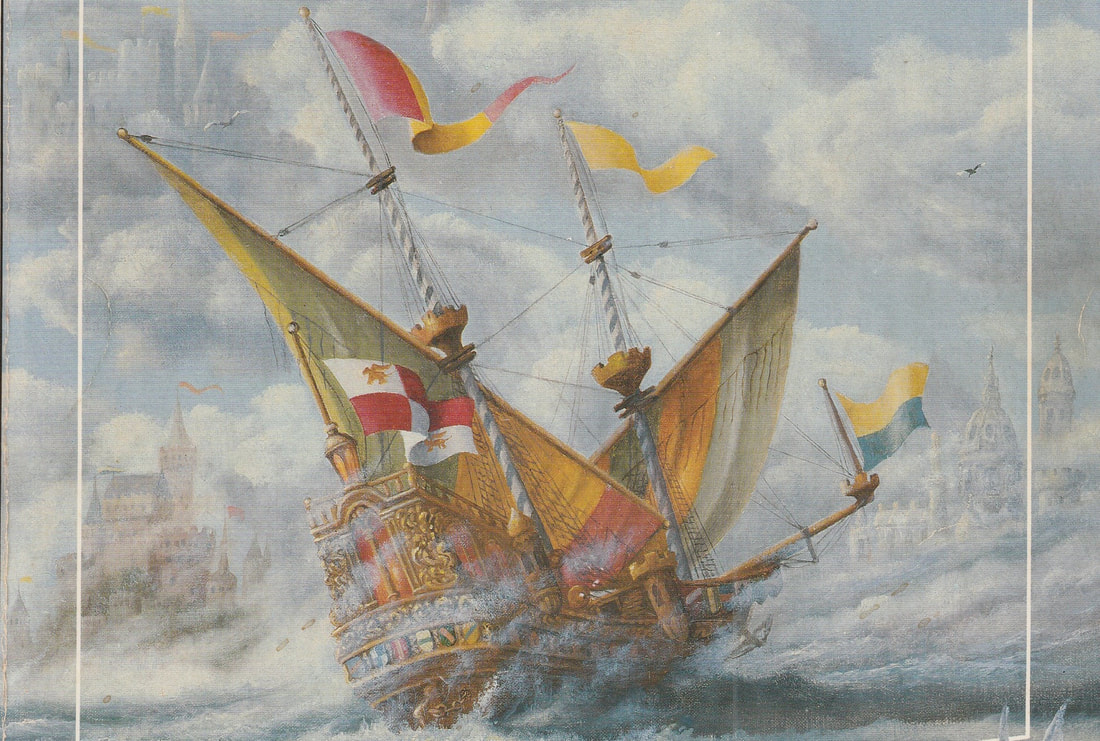
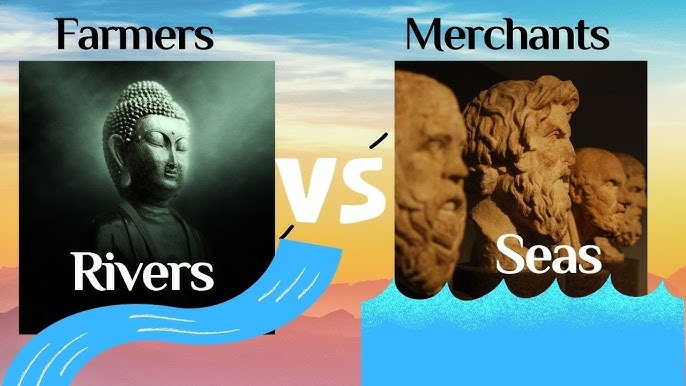
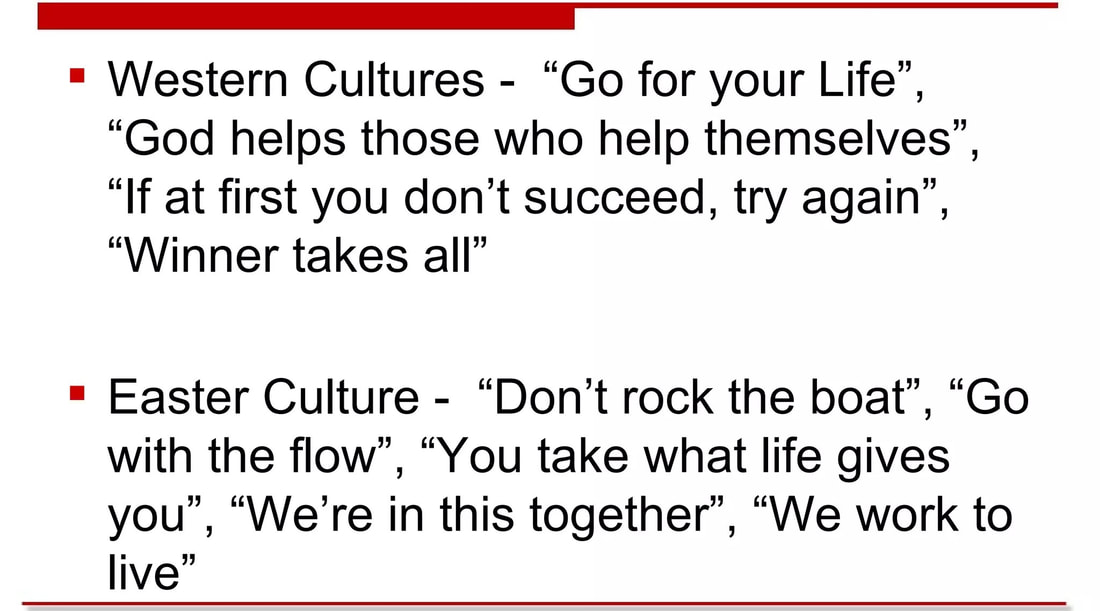
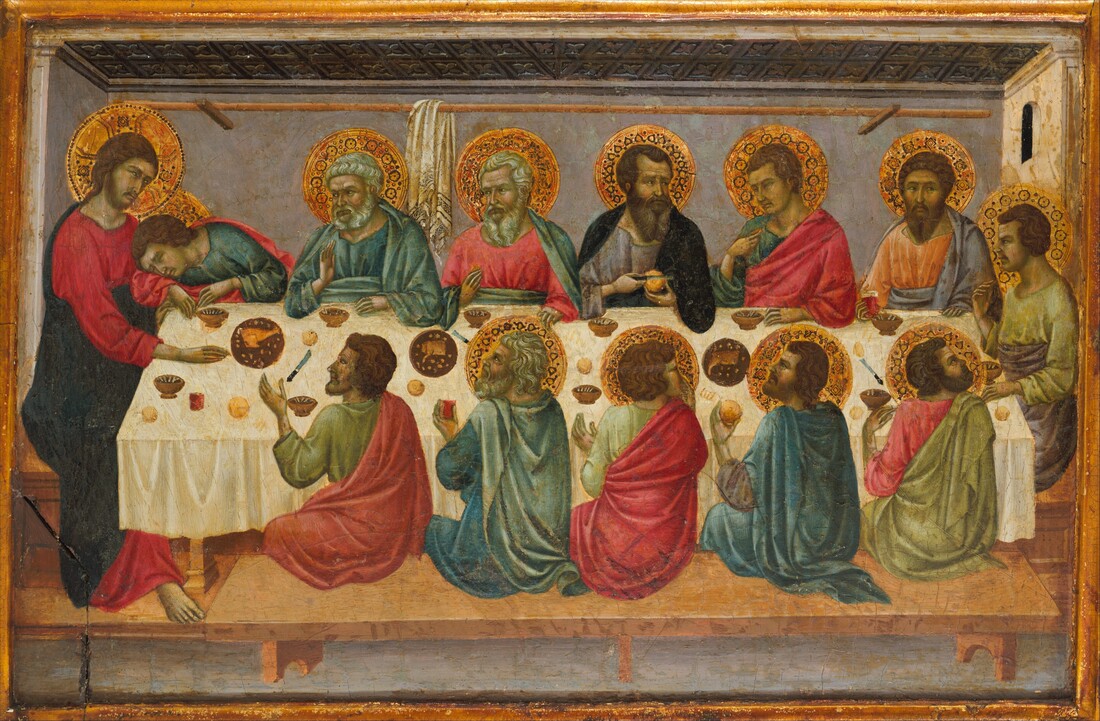
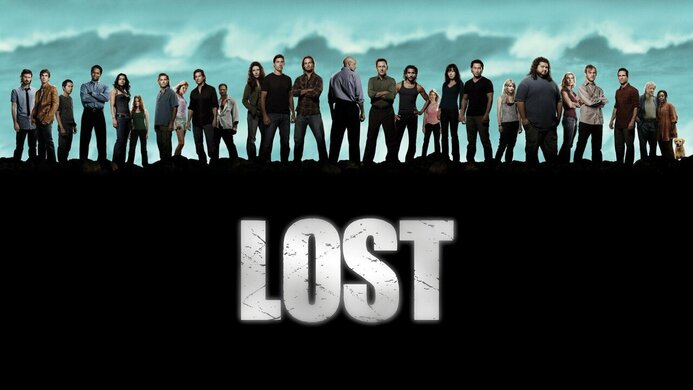


 RSS Feed
RSS Feed